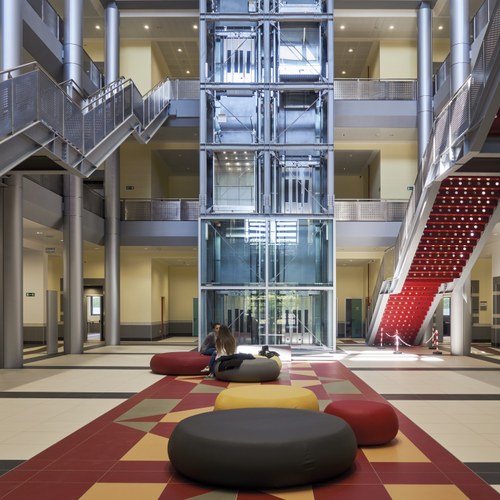In order to strengthen the areas identified in its strategic plan, the Alma Mater Studiorum University of Bologna intends to promote the creation of positions of Researcher, Associate or Full Professor for candidates who are engaged in research on an international level

In order to strengthen the areas identified in its strategic plan, the Alma Mater Studiorum University of Bologna intends to promote the creation of positions of researcher, associate or full professor for candidates engaged in research activities at the international level. The University of Bologna intends also to encourage the number of visiting professors who come to Bologna for periods of one to six months to develop new research projects and increase the opportunities for international collaborations.
The Alma Mater Studiorum University of Bologna intends to open new positions of Researcher, Associate or Full Professor for highly qualified scholars who are engaged in research on an international level and invites expressions of interest also for visiting professors. The present call is open to highly qualified scholars, and there is no limit to any specific area of research.
However, the new Strategic Plan is comprised of ten main areas of interest (Advanced Manufacturing; Health and Well-being,Agri-food; Sustainability and Circular Economy; Arts and Humanities in the Digital Era; Interculturality, Inclusion, and Social Well-being; Big data, Data Science, and Industry; Creativity; Climate change and its environmental and socio-economic impacts; Enabling Technologies for Society 4.0; Artificial Intelligence; Climate Change).
Additional specific topics include:
Engineering and Technology: eco-informatics; big data, data science & industry 4.0; artificial intelligence; help technologies.
Humanities: the history of arts, music, and film; media and performance studies; cultural anthropology; museum studies; art conservation and restoration; ICT archive studies; digital humanities applied to the classics and modern texts; Italian literature; book and manuscript history; big data or sentiment analysis in computational linguistics; cognitive and experimental linguistics; second language acquisition; multilingualism and modern languages; translation and (inter)cultural and literary studies for inclusion; history of Russia; history of Turkey and Ottoman Empire.
Medical and Life Sciences: sports science, endogenous neuro-cardio-vascular regeneration, evolutionary genetics.
Social Sciences: global challenges and global governance.
Natural Sciences: earth observation from space, natural hazards and risk.
Artificial Intelligence: Humanistic A.I., A.I. for Industry, A.I. for Health and Wellbeing, A.I. for Law and Governance, A.I. in Education
Climate Change: Atmospheric Sciences, Ocean Sciences, Earth System Science, Health and climate change, Agri-food and climate change, Impact of climate change on biodiversity and ecosystems, Climate change, policies, economy, and society, Urban development and climate change, Industrial development and climate change, Renewable energy and climate change, Efficient transport, Earth Observation technologies and applications, Cultural heritage preservation and valorisation, Climate Change and Water.